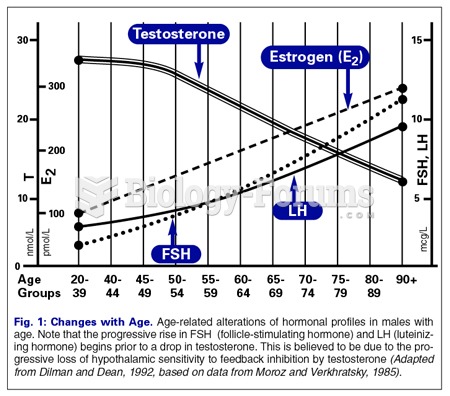|
|
|
There are over 65,000 known species of protozoa. About 10,000 species are parasitic.
More than 150,000 Americans killed by cardiovascular disease are younger than the age of 65 years.
More than 4.4billion prescriptions were dispensed within the United States in 2016.
There can actually be a 25-hour time difference between certain locations in the world. The International Date Line passes between the islands of Samoa and American Samoa. It is not a straight line, but "zig-zags" around various island chains. Therefore, Samoa and nearby islands have one date, while American Samoa and nearby islands are one day behind. Daylight saving time is used in some islands, but not in others—further shifting the hours out of sync with natural time.
Patients who have undergone chemotherapy for the treatment of cancer often complain of a lack of mental focus; memory loss; and a general diminution in abilities such as multitasking, attention span, and general mental agility.






